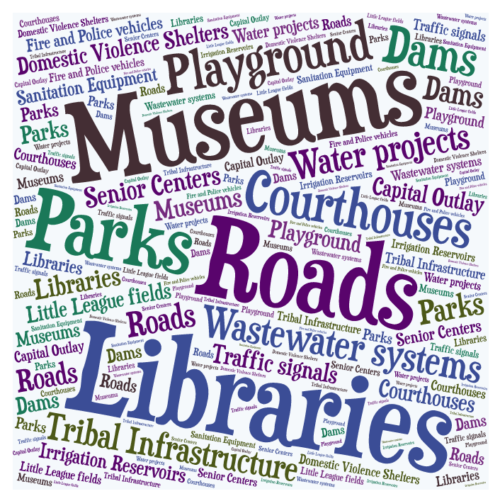
The Senate Rules Committee killed a bill today to make public the capital outlay funding decisions of individual legislators.
Currently, New Mexico’s capital outlay system allows lawmakers to divvy up a pot of money among themselves to then give out to projects as they see fit, and to keep that information secret. For instance, if a lawmaker has $100,000 to allocate and divvies it up among five different projects, the public is denied access to a list showing which projects, out of many requests, the lawmaker funded.
Each legislator has to specifically give permission to legislative staff in order to allow release of that information. By the same token, the projects the legislator chose not to fund are also not known by the public.
One of the transparency bill’s sponsors, Sen. Sander Rue, R-Albuquerque, noted that since a similar bill has already passed the House, the Rules committee would get another shot at passing the measure.
Rue and Rep. Matthew McQueen, D-Santa Fe, have both sponsored bills for several years to make the information public. Along with several other legislative sponsors who’ve joined them this year, Rue and McQueen say it’s public money, and how it’s spent ought to be public information.
The bill before Senate Rules today was SB 144, co-sponsored by Rue, Sens. Bill Tallman and Jacob Candelaria, and Rep. Joy Garratt, all of Albuquerque.
During the committee discussion, Sen. Daniel Ivey-Soto, D-Albuquerque, said the bill is a good first step, but that there’s more reform needed.
“Right now we have two lists. We have a public list and a private list,” said Ivey-Soto. “There’s this funding theater that happens in this process.”
Ivey-Soto wants to do away with what he calls the public list, which is simply a list of projects a legislator signs off on at the request of constituents so their project can be considered for funding by all legislators.
That information is available on the Legislature’s website, with some projects having several legislators listed as sponsors. But that doesn’t mean the legislator will actually allocate resources to any of them. How the legislator gives out his or her money is kept secret.
Ivey-Soto said he wasn’t signing any such requests this year out of protest, but would still allocate his funding by choosing from projects sponsored by other legislators.
The transparency bill got significant pushback and was ultimately defeated, with the primary arguments being about the difference between rural and urban legislators.
One of the most vocal in opposition was Sen. Cliff Pirtle, R-Roswell, who said he and lawmakers in his region pool their money together on projects, and then all take equal credit publicly. This measure would disrupt that process, he said.
Urban lawmakers don’t have the same pressures to fund big infrastructure projects or capital requests that span multiple communities, he said.
“We’re able to give all the legislators equal credit,” Pirtle said, noting that senators get more than representatives to hand out. The public knowing how individual legislators allocated their money would politicize the process, he said.
Pirtle said the bill could be fixed and offered a successful amendment that others said gutted the bill by stripping out information identifying individual lawmakers.
Pirtle subsequently voted against the bill entirely.
There’s nothing in the bill that prevents legislators from continuing to pool their money, said Rue in response. “I think we’re playing games with this. If you don’t want to face the music, don’t take the money and don’t spend it.”
“This isn’t our money, it belongs to the taxpayers, and if you can’t explain what you did or you’re uncomfortable doing that then you shouldn’t be taking the appropriation and doing this in the first place,” he continued.
Urban lawmakers pushed back on the notion that making their capital outlay funding decisions public would cause them less problems than rural lawmakers. They have just as many competing interests clamoring for dollars, several of them noted.
“We have the same issue in ABQ as rural legislators,” said bill co-sponsor Bill Tallman, D-Albuquerque. Tallman also said the arguments being made against transparency were “almost” an argument for changing the funding system entirely so that individual lawmakers aren’t making such decisions in the first place.
“I’m in that exact boat,” said Jeff Steinborn, D-Las Cruces, noting many different interests who ask him for capital outlay funds.
“We’re going to face the same scrutiny if this bill passes, as anybody in a rural area will,” said Sen. Gerry Ortiz y Pino of Albuquerque. “I have 15 charter schools in my district, 15. They all want a slice. I can’t fund all of them.”
The bill died on a vote of six to five, with several urban legislators joining their rural counterparts in opposition. Voting against the bill were Sens. Pirtle, R-Roswell, Stuart Ingle, R-Portales, Mark Moores, R-Albuquerque, Clemente Sanchez, D-Grants, Mary Kay Papen, D-Las Cruces, and Gregory Baca, R-Belen.